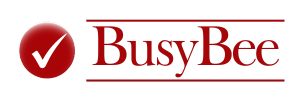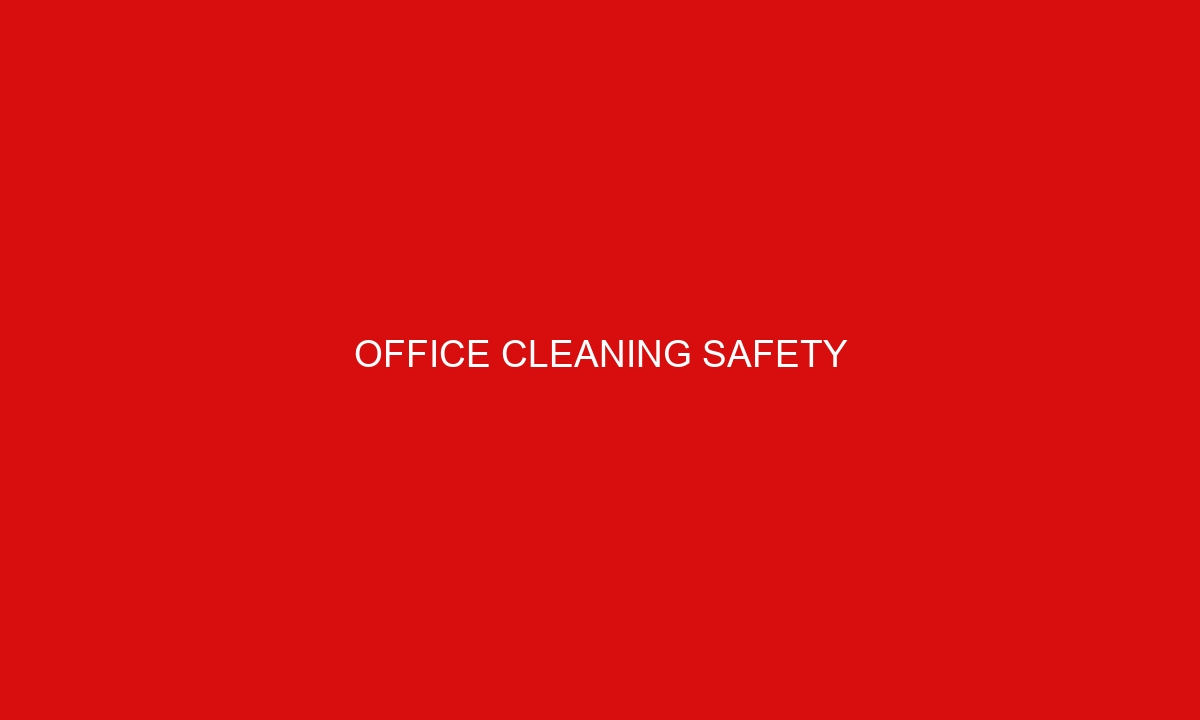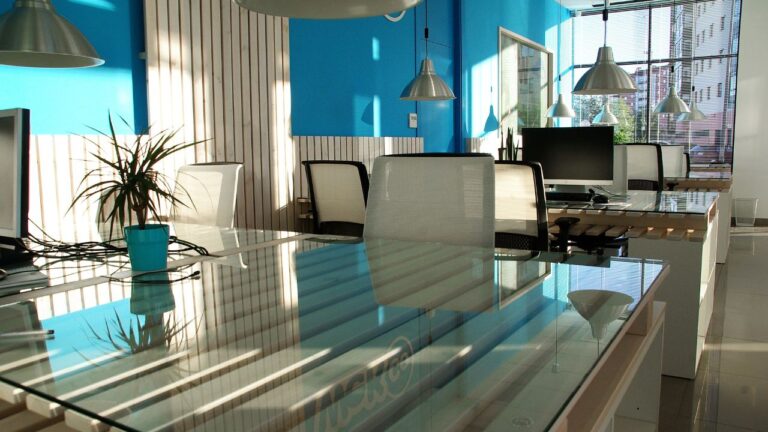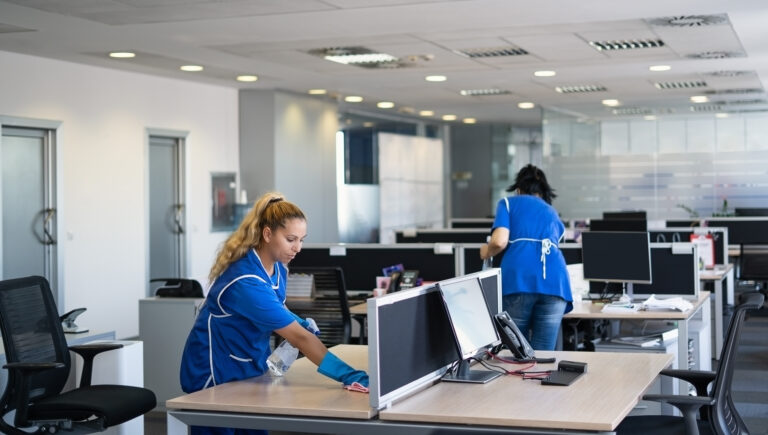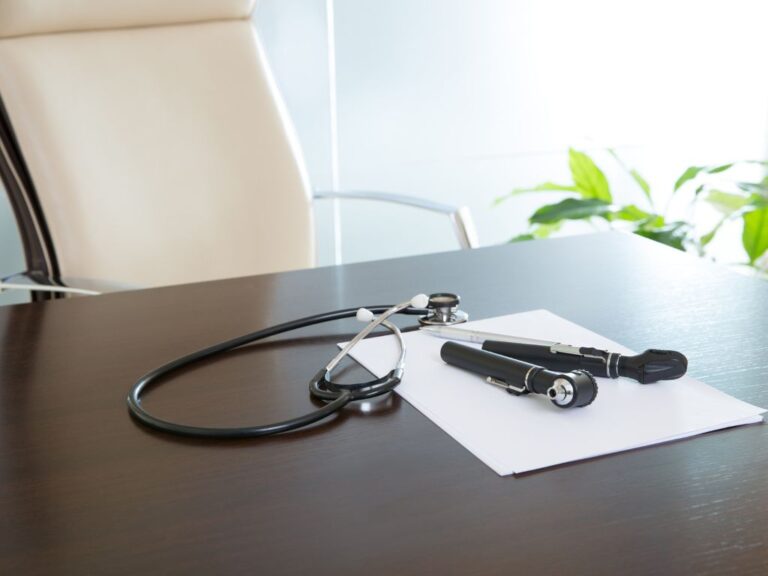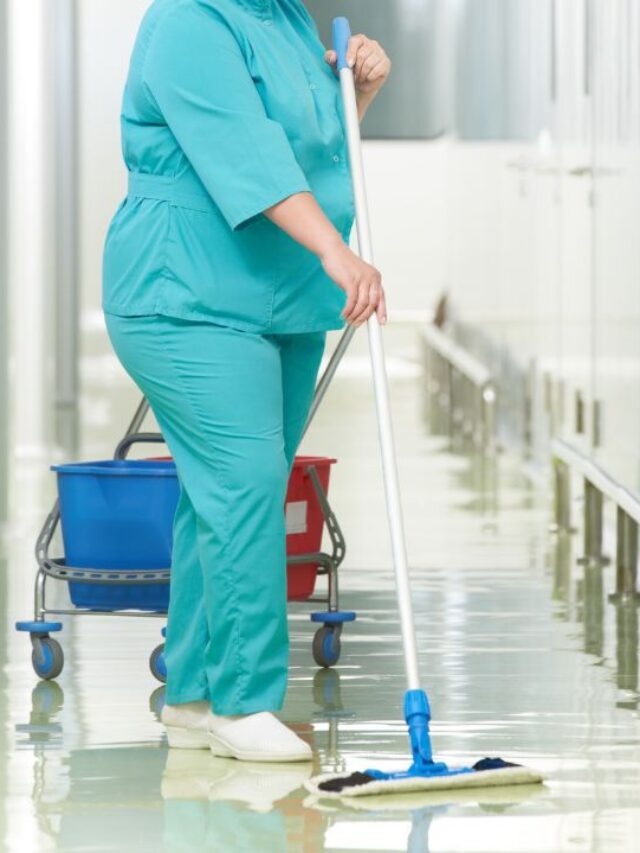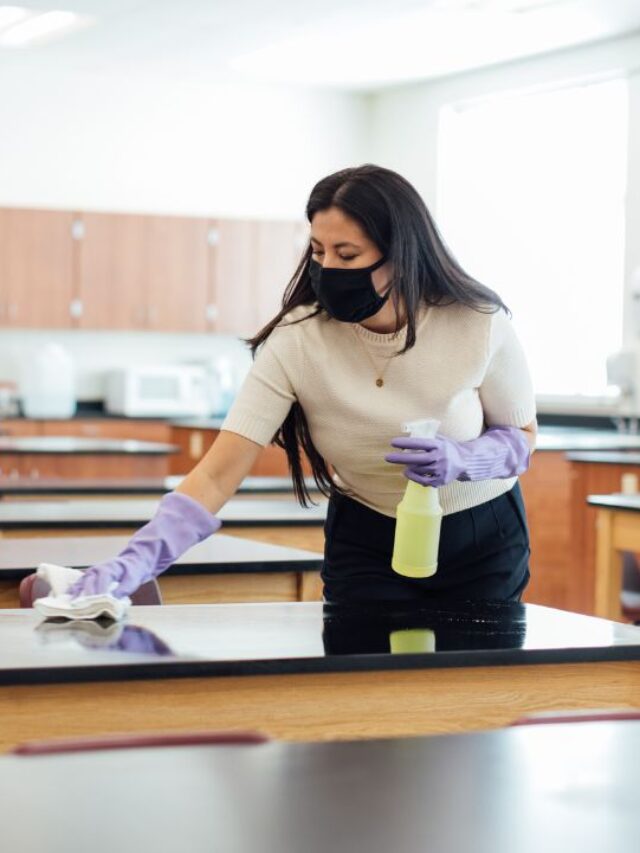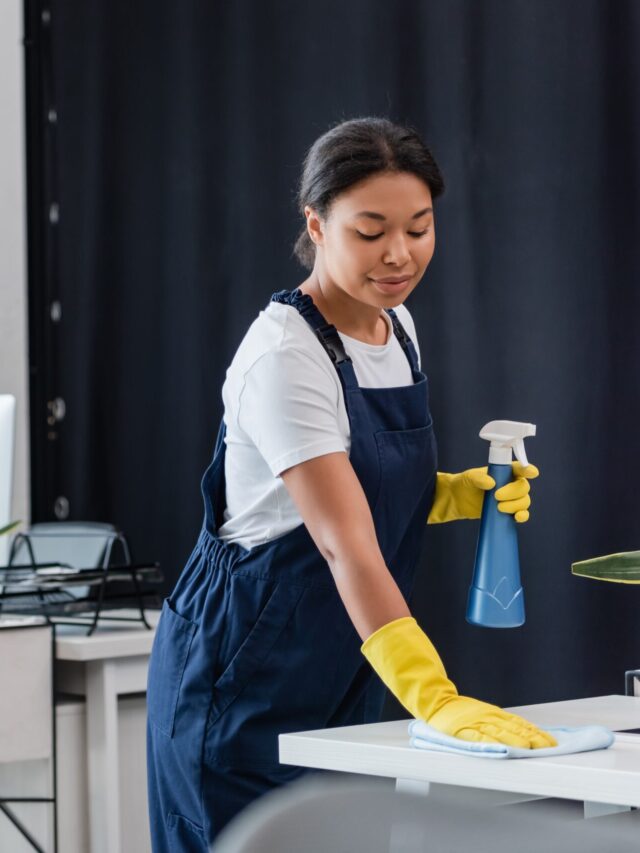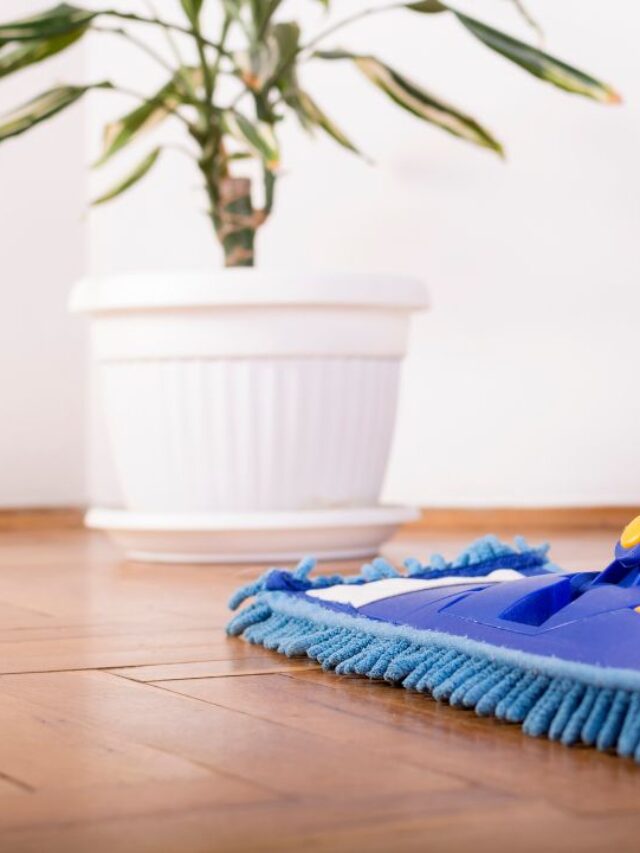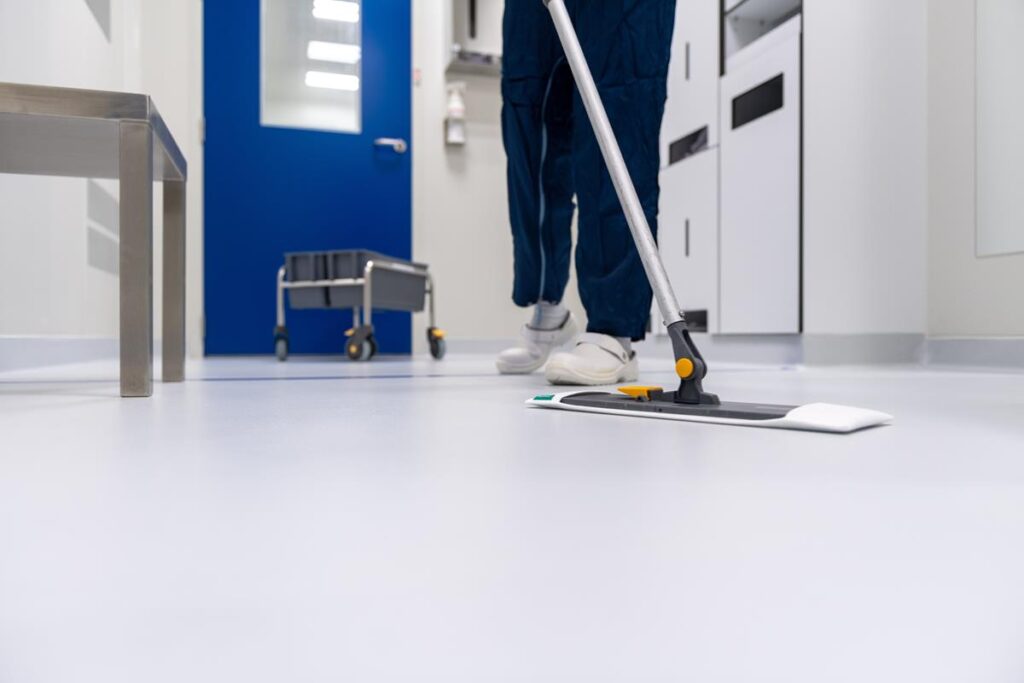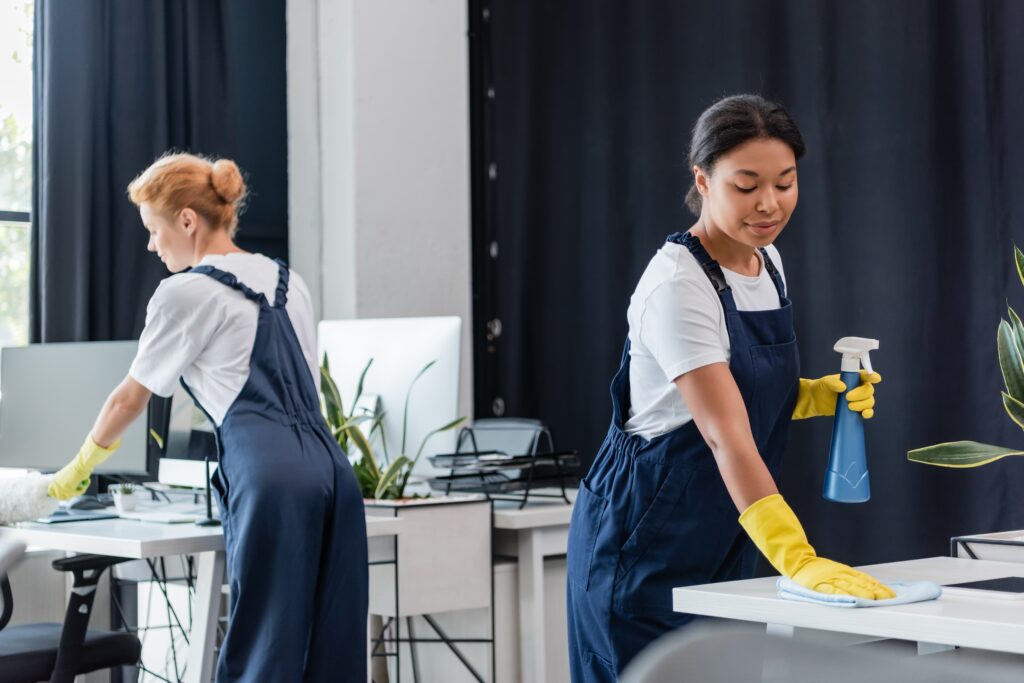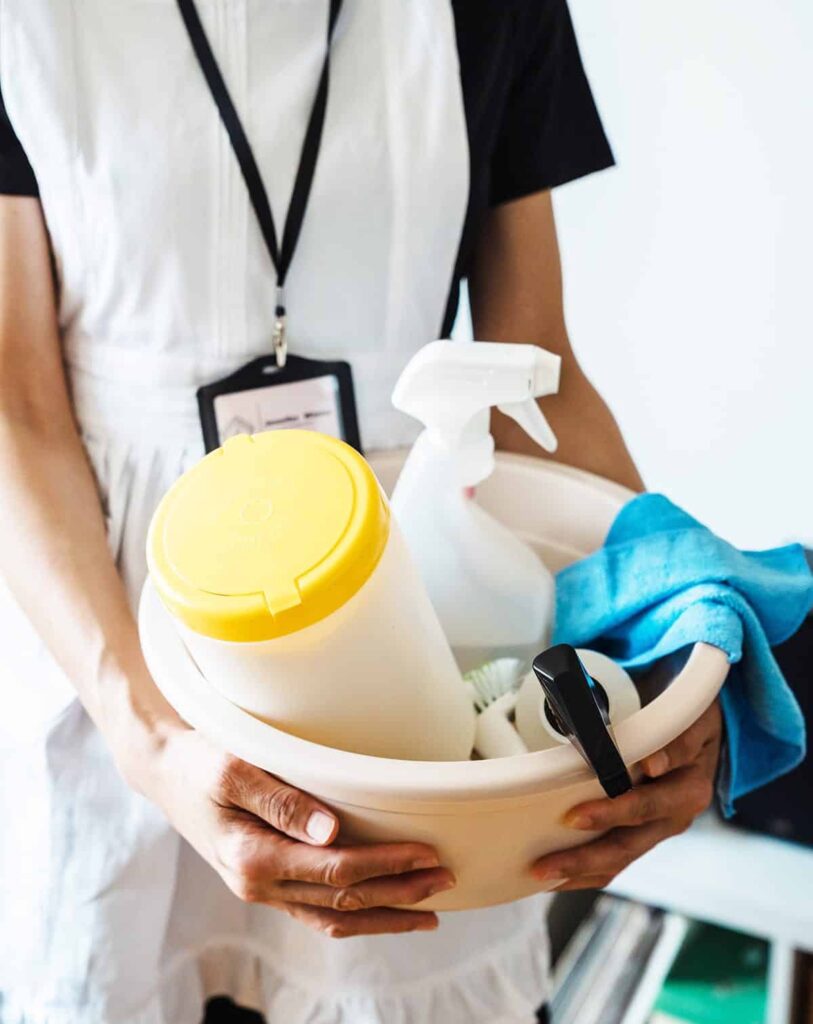Office Cleaning Safety
Office Cleaning Safety
Written by:
Maintaining a clean, tidy workplace environment is essential for the safety and well-being of employees. Employees play a crucial role in creating an environment that is functional, yet safe. Keeping work spaces clean and organized can prevent unnecessary accidents, injuries, and other health-related issues from occurring. Awareness of office hazards, including piles and toxic chemicals is important in combatting the issue. Simple measures like monitoring rest room sanitation and kitchen cleanliness, can keep safety issues at bay.
Office Hazards
Keep Your Office Spotless with Our Free Office Cleaning Checklist!
Want to make sure you’re covering all the essential cleaning tasks? Our comprehensive guide covers all essential cleaning tasks, from daily tidying to deep cleaning tips. Make sure no spot is missed and create a healthier, more organized workspace today!
Safety hazards abound in the typical office environment. Coffee and water spills can cause employees to slip and fall. Overloaded electrical outlets increase the risk of fire. Even damaged furniture has the potential to cause serious injury. The list of common hazards is seemingly endless. Remembering to clean-up spills promptly and having a sufficient number of outlets for electrical equipment can help reduce the number of unnecessary accidents and injuries. Timely repair or replacement of tattered furniture is also important in establishing a safe environment.
Piles
Stacks of papers, boxes, and other office materials pose many potential problems in the workplace. Stockpiles on desks, tables, or floors are a significant fire hazard, especially those near electrical outlets or flammable liquids. In addition, as piles accumulate, there is an increased risk of injury. Employees may trip over piles on the floor or sustain injuries when stacks of paper or boxes inadvertently fall over. To avoid these catastrophes, eliminate piles and store paper appropriately on shelves or in filing cabinets.
Rest Room Sanitation
Untidy rest rooms are not only an eyesore, but also a health hazard. Unkempt rest rooms, including those with paper products strewn on the floor, standing water, and soap spills, create a recipe for disaster. Employees can easily slip and fall on wet floors. Dirty sinks, hand dryers, or toilets can become a germ reservoir. Practicing cleanliness immediately following rest room use is a simple way to prevent accidents and illness. Maintaining a regular cleaning schedule and notifying maintenance of leaks or broken equipment are other important preventative measures.
Toxic Chemicals
Improper storage of toxic chemicals can have disastrous consequences. Flammable liquids housed in inappropriate containers or locations are serious fire hazards. Poor ventilation can create toxic fumes, while incompatible chemicals can spark lethal reactions. Unmarked chemicals may be used inappropriately, increasing the likelihood for health complications and fire. Appropriate storage of toxic chemicals is critical in safeguarding employees. Ensuring that chemicals are stored in clearly labeled, spill-resistant containers is essential. Providing adequate ventilation and temperature regulation is also important. Locked cabinets specifically designated for toxic chemicals can aid in accident and injury prevention.
Cleaning Supplies
Much like toxic chemicals, cleaning supplies can also create problems in the workplace when handled negligently. Though these common everyday items may seem harmless, the potential for accidents and injuries is ever-present. If these products make unintentional contact with the eyes or are accidentally ingested or inhaled, adverse reactions, like eye irritation and labored breathing, can result. Failure to store cleaning supplies in their original, labeled containers can lead to improper usage and potential safety concerns. Careful label reading can help determine if cleaning supplies are flammable or have other special storage requirements. Following proper disposal protocol for cleaning supplies including gloves and paper towels, can avert possible crises. Having a first-aid kit available is useful should cleaning supplies contact eyes or skin. It is also important to display poison control contact information where cleaning supplies are stored in case an emergency ensues.
Kitchen and Food
The kitchen and other food storage spaces at work can create a slew of health and safety concerns. Employees that eat in the kitchen may leave trash or crumbs, inviting unwanted insects and rodents. Bacteria can accumulate on counters, tabletops, sinks, and other surfaces used for food preparation. Unattended leftovers in the refrigerator are prone to mold and other types of germs. Eating at work stations has similar hazards. Food becomes embedded in keyboards, on desktops, and in carpets, harboring germs and increasing the chances of pest infestation. Cleaning the kitchen and employee workspaces is necessary for maintaining a safe, healthy environment. Garbage should be disposed of in appropriate receptacles. Countertops and other food preparation surfaces should be cleaned regularly. Daily emptying of trash cans and weekly refrigerator cleanings are also recommended. If possible, employees should refrain altogether from eating at workspaces.
Recommendations
Office cleanliness is a must where safety is concerned. Taking the time to adequately educate employees regarding required safety practices in the workplace is critical in reducing the number of accidents, injuries, and other health risks. Making employees active participants in the process increases the chances of maintaining a safe working environment. Cleaning schedules should be established and enforced. This includes schedules for individual workspaces, rest rooms, and kitchens. Workspaces should be free of piles, broken furniture, and food. Employee cleanliness in rest rooms and regular maintenance of the facilities are important in preventing illness and injury. Procedures for storing, handling, and disposing of toxic chemicals and cleaning supplies should be implemented and followed accordingly. Kitchen cleanliness should include counter and floor cleaning, proper disposal of trash, and emptying of refrigerator contents at regular intervals. A clean office is key in providing a safe workplace environment for all employees.
Contact Us
Get a quote
Your satisfaction is our priority, and we’re here to assist. Reach out to Busy Bee effortlessly by contacting us. Whether you have questions, need a custom quote, or want to discuss your cleaning requirements, our friendly team is ready to respond promptly. Connecting with us is the first step towards a cleaner and more comfortable environment for your home or business.
Call us for a quote today!
Contact Us
Get a quote
Your satisfaction is our priority, and we’re here to assist. Reach out to Busy Bee effortlessly by contacting us. Whether you have questions, need a custom quote, or want to discuss your cleaning requirements, our friendly team is ready to respond promptly. Connecting with us is the first step towards a cleaner and more comfortable environment for your home or business.
